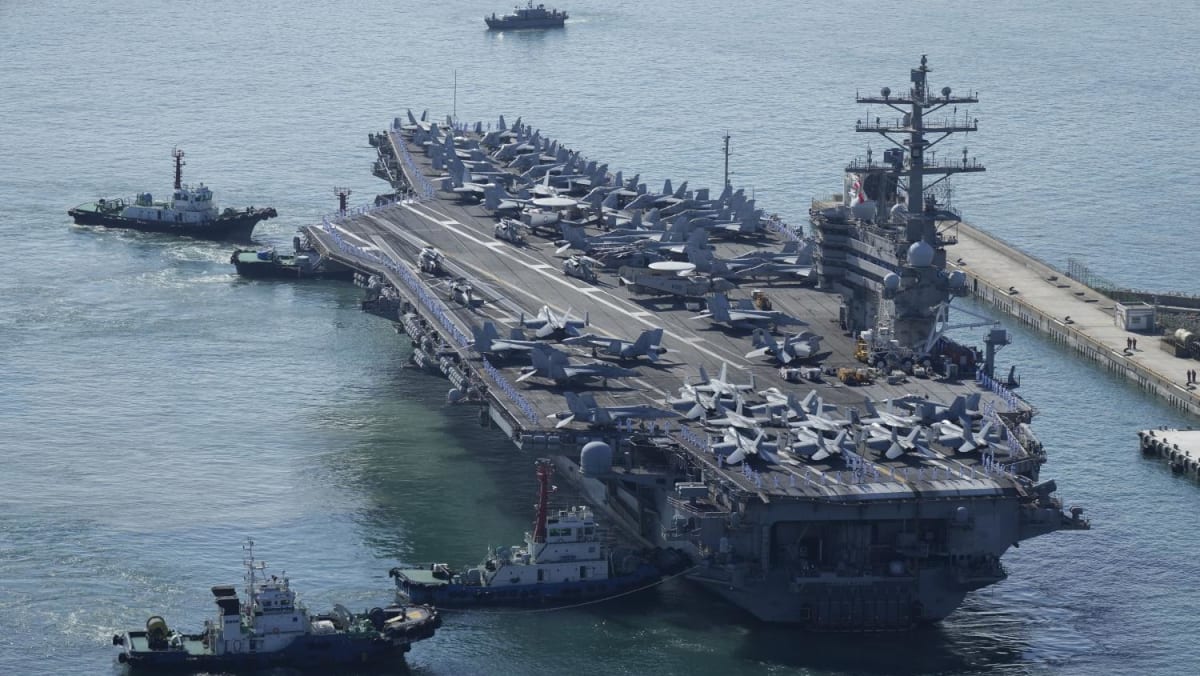US carrier, allied ships hold missile defence drill after North Korea tests
A State Department spokesperson said the United States condemned Thursday’s launch as a violation of the United Nations Security Council resolutions and a threat to regional neighbours and the international community.
The spokesperson, however, added that Washington was committed to a diplomatic approach and called on the North to engage in dialogue.
On Wednesday, the United States accused China and Russia of enabling North Korean leader Kim Jong Un by blocking attempts to strengthen UN Security Council sanctions on Pyongyang for its nuclear weapons and ballistic missile programs.
South Korean President Yoon Suk-yeol, who is set to speak to Kishida by telephone on Thursday, told reporters his country would ensure its security through its alliance with the United States and cooperation with Japan.
Tokyo lodged a “vehement protest” with North Korea over Thursday’s launches through delegations in Beijing, Japanese Defense Minister Yasukazu Hamada said.
“North Korea has relentlessly and unilaterally escalated its provocation especially since the beginning of this year,” Hamada told reporters.
Thursday’s first missile probably flew to an altitude of about 100km and a range of 350km, while the second had an estimated altitude of 50km and covered 800km, probably taking an irregular trajectory, he said.
Many of North Korea’s most recent short-range ballistic missiles (SRBMs) are designed to fly on a lower, depressed trajectory and potentially manoeuver, complicating efforts to detect and intercept them.
South Korea’s JCS said the missiles were launched from near the North Korean capital of Pyongyang.
The United States and its allies have stepped up displays of military force in the region, but there appears little prospect of further international sanctions by the UN Security Council, which has already passed resolutions banning the North’s missile and nuclear development.
China’s deputy UN ambassador, Geng Shuang, said the Security Council needed to play a constructive role “instead of relying solely on strong rhetoric or pressure”.
In May, China and Russia vetoed a US-led push for more UN sanctions on North Korea over its renewed ballistic missile launches, publicly splitting the Security Council for the first time since it began punishing Pyongyang with sanctions in 2006.
For all the latest world News Click Here

